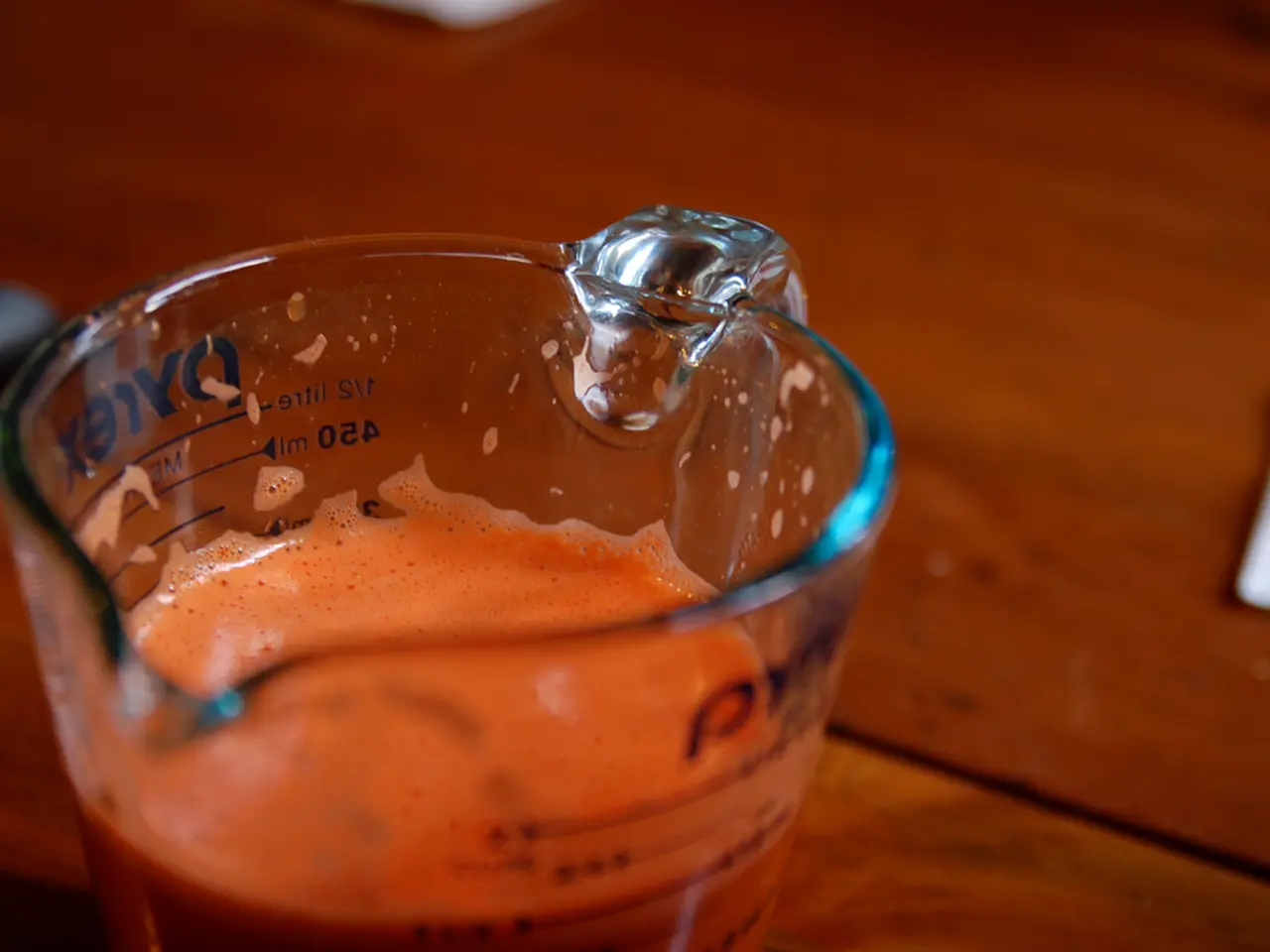Ranking of 10 Effective Natural Exfoliators
Exfoliation, a process that involves ungluing or scrubbing away dead skin cells, plays a crucial role in maintaining healthy and radiant skin. By removing dead skin cells, exfoliation allows moisturisers and skin care treatments to penetrate better, leading to improved absorption and more effective results.
Normally, our skin sheds old dead cells after they reach the epidermis, the top layer of the skin. However, some dead cells may remain, causing the skin to appear dull and rough. These lingering cells can also interfere with oil secretion, leading to blemishes.
Fortunately, there are numerous choices for exfoliation, catering to various preferences and budgets. These range from professional treatments and expensive designer skin care products to homemade natural treatments using common ingredients like honey, yogurt, baking soda, ground fruit seeds and nuts, sugar, oatmeal, lemon juice, papaya, ground coffee, and sea salt.
When using a friction-based exfoliant scrub, it's essential to avoid products containing sharp-edged ingredients such as ground stone-fruit pits and nut shells. These can cause microtears in the skin. Instead, opt for finely ground oatmeal, a gentle exfoliant suitable for sensitive skin.
For a hydrating honey oatmeal facial, you can mix finely ground oatmeal with plain yogurt or buttermilk and honey. This homemade treatment can save you up to $110 compared to a typical spa treatment. Alternatively, papaya, rich in the enzyme papain, can be used to dissolve old, dead skin cells without harming the younger, live cells beneath. Annie Berthold-Bond recommends mashing a green papaya and using it to make a facial mask.
Yogurt, a staple in many kitchens, also offers skin benefits due to its lactic acid content. This alpha hydroxy acid hydrates, exfoliates, and has skin-smoothing and soothing benefits, potentially helping to even out skin tone.
Sugar, another common household ingredient, is a natural source of glycolic acid, an alpha hydroxy acid that breaks down the protein that keeps dead skin cells from sloughing off, boosts new skin cell production, and smooths and softens skin. A sugar scrub made from sugar and oil can be used safely on both face and body.
Citrus juices, such as lemon juice, contain alpha hydroxy acid, which penetrates and removes the protein glue that causes dead skin cells to stick to the epidermis. A citrus exfoliating mask can be made by mixing one-quarter-cup each of lemon juice, apple juice, grape juice, and cane sugar in a glass jar, ensuring the sugar completely dissolves.
Baking soda is another non-abrasive exfoliant that can be added to facial cleanser to help clean and exfoliate the skin. Oatmeal, used as an exfoliant, is gentle enough not to tear or injure sensitive skin, while sea salt, suitable for those with dry skin, has medicinal value in treating skin conditions such as psoriasis.
Exfoliation offers additional benefits beyond improved skin appearance. Regular exfoliation can help remove dead skin cells, keep pores clean, improve blood circulation, and give the skin a healthy, more youthful glow. Furthermore, exfoliation can help treat and prevent ingrown hairs, leading to smoother skin after shaving.
In conclusion, exfoliation is a valuable tool in maintaining healthy, radiant skin. By employing natural and gentle exfoliating ingredients such as Tahiti Monoi oil, Tiaré flower, vitamin E, plant-based oils like Tamanu oil, and common household items like sugar, lemon juice, yogurt, and oatmeal, you can achieve glowing skin without breaking the bank.
Read also:
- Long-Term Prescription Drug Impact on Brain Function
- Benefits, sources, and supplements for Vitamin D and its role in addressing osteoporosis
- Diabetes Management during Pregnancy: Keeping Tabs on Blood Sugar Levels and Lifestyle Adjustments
- Life Expectancy with Interstitial Cystitis: Exploration of Research, Treatment Methods, and Additional Information






